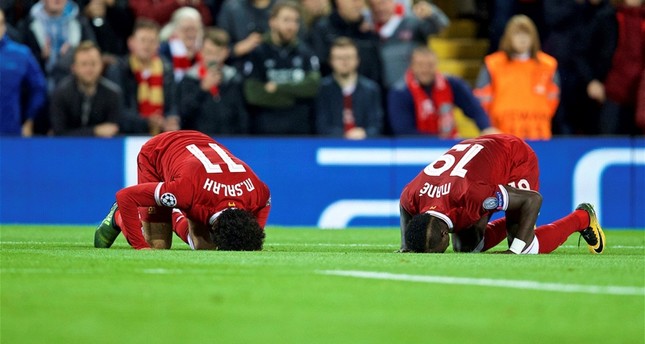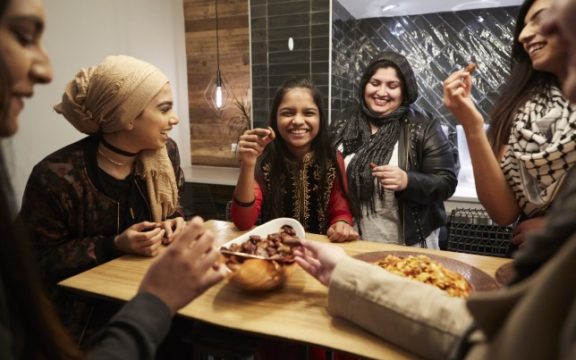The Islamic holy month of Ramadan began on May 6 and lasts until June 4, 2019. It is a special moment for two influential Liverpool players, Mohamed Salah and Sadio Mane. Both are devout Muslims. They are known to have celebrated most of their goals by performing sujud, the Islamic act of prostration.
As Muslims observe Ramadan by fasting from dawn until dusk. No food or no liquid is consumed from dawn (Suhur) to dusk (Iftar) in order to cleanse the soul and mind.
Normally, not only are Salah and Mane fasting but they also must be on top performance during 90 minutes on Liverpool’s Champion League final against Tottenham Hotspur. The all-England final will be held in June 2, 2019 at Wanda Metropolitano Stadium.
Footballers and the physical demands on the crucial match raised an issue, if they should fast – absenting themselves from any food and liquid – which possibly affect their form on the pitch. The same issue was raised ahead Liverpool’s Champions League final against Real Madrid last year, which also took place during Ramadan.
Liverpool Manager Jurgen Klopp insisted it is a private matter for Salah and Mane.
“Religion is private, how I understand it,” he said as reported by Liverpoolecho during pre-match press conference in Kiev last year. “Nothing to say about that but all fine, you will see him out there. In training he is full of power – you need to be the day before a final,” he added.
It is believed that Salah did not fast during his Champions League final performance last season, but was still able to follow the precepts of his religion. It had previously been reported in Egypt that Salah would uphold his fasting during the final.
Regarding the issue, Liverpool’s physio Ruben Pons explained: “We were in Marbella (Liverpool’s training camp) and the nutritionist established a work plan. Tomorrow and the day of the match he won’t fast, so it’s not going to affect him.”
It is expected that Salah would follow the same procedure as he did last season during Champions League final in Kiev this season.
In the UK, Suhur, which is eaten in the morning, can be as early as 2.30am GMT while Iftar (the breaking of fast at dusk) will be observed after 8.33pm GMT. This means that footballers are unable to hydrate or consume any nutrients for more than 12 hours.
But while fasting is obligatory for adult Muslims, those who are suffering from illness, travelling, elderly, pregnant, breastfeeding, menstruating or chronically ill are exempt. Athletes and those who participate in physically demanding sports could be exempted from fasting on matchdays.
Under Islamic teachings, it is permissible to break your fast due to “adequate needs” or if you are travelling during the day. Salah and Mane’s condition makes possible to break their fast, since they will be travelling to Madrid for the Champions League final this season.
An Egyptian newspaper, youm7.com, has reported that Mufti al-Diyar al-Mishriyyah (The Great Adviser on Religious Law) Dr. Shawki ‘Allam said the footballers playing at Ramadan are able to break their fast.
The fatwa (a binding ruling in religious matters) is based on Hanafi school believing that people who are fasting while having a professional contract, then their fasting worsen their performance, they are able to break their fast which is based in emergency situation and the possibility of replacing it another days. Actually, the fatwa itself was released in 2009.
Under Islamic teachings, it is allowed to break or postpone your fast “with anything that is an adequate need” in order to preserve one’s health, which is why Salah did not fast during last season’s Champions League final and was not considered a less devout Muslim.
Therefore, the fasting is able to be negotiated within this dispensation. Hence the physical demand for the Muslim footballers in crucial game, like in Champions League final, is not an issue to worry about.
![Islami[dot]co](https://en.islami.co/wp-content/themes/jambualas/images/logo.png)

